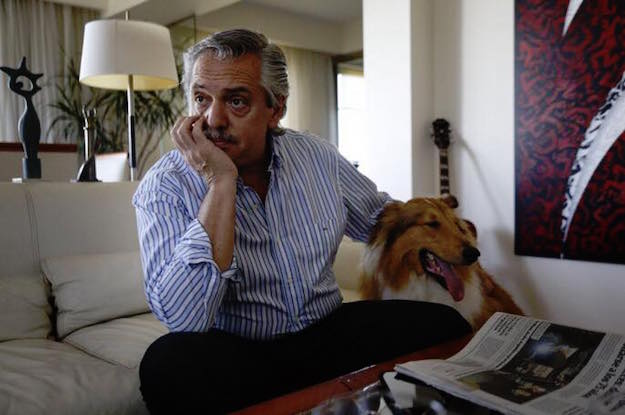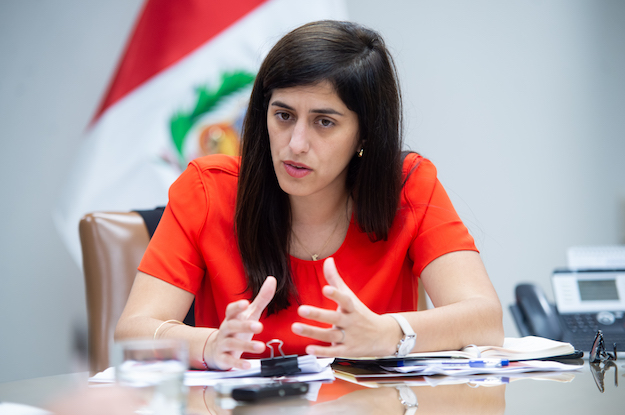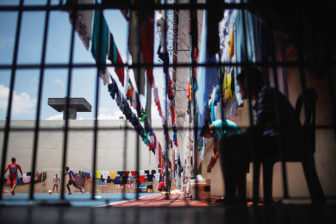Click here to read more about Argentina’s presidential race.
It was the announcement that shocked everyone. Argentina’s former President Cristina Fernández de Kirchner wouldn’t run for president. Instead, her former cabinet chief Alberto Fernández would be her party’s candidate, and she’d be his running mate. Kirchner was expected to lead the ticket herself and was ahead of incumbent Mauricio Macri in many recent polls.
Fernández, who lacks charisma or political support of his own, had only recently returned as Cristina’s main political advisor after a decade of being highly critical of the former president. After quitting as her chief of staff in 2008, he was vocally against some of Kirchner’s most controversial policies, including a reform to increase political control over the judiciary, a fight with the agricultural sector, an attempt to curtail the influence of a critical media conglomerate, and an agreement with Iran to investigate a terrorist attack in Buenos Aires.
Some analysts see this track record as proof that Fernández would be a moderating force to a highly ideological Kirchner. But Kirchner was never as rigid in her ideology as her detractors – and some devout supporters – may have believed. After all, why would a hard ideologue pick the moderate Daniel Scioli as her preferred successor in 2015 and now Fernández in 2019?
Rather than ideology, it is pragmatism that best explains Fernández and Kirchner’s differences. He believed many of her government’s measures were reckless, with more political costs than benefits. That can help predict how he may govern if voters elect him later this year.
In turn, on the economic front, a future Fernández-Kirchner administration would likely seek to return to the pragmatic nationalism of early kirchnerismo. This would include some currency and capital controls to contain runs against the peso (and not the disastrous restrictions Kirchner implemented late in her administration), a halt to any meaningful structural reforms (especially in the labor market), and inward-looking policies to restore the domestic market and protect Argentina’s industries from foreign competition. Kirchner sent strong signals in this regard when she praised Donald Trump’s trade policies during a recent speech.
At the same time, both members of the new ticket have indicated that the ongoing agreement with the IMF would be honored but renegotiated, to spread out debt payments over a longer period of time. There is little room for anything else: With commodity prices nowhere near the record levels they reached during the early 2000s and a significant increase of public debt since Macri took office in 2015, the new government will need all the support it can get from international markets and lending institutions, no matter its ideological affinities. The development and growth of the Vaca Muerta shale oil fields in Argentina’s Patagonia could provide some relief, provided that oil prices continue to recover and that companies get assurances to maintain their investments. Meanwhile, nearly all Peronist governors and lawmakers (including those currently backing other options such as Sergio Massa or Roberto Lavagna) are likely to unite again in support of a President Alberto Fernández, with whom they have good relations.
Despite his pragmatism, Fernández still isn’t exactly a pro-market, pro-institutions centrist. After all, he was Kirchner’s right-hand man in 2007 when her government began forging official statistics to underestimate the inflation rate, and he has recently said that a new government should “revise” recent court rulings, alluding to the legal troubles of Kirchner and her inner circle. Derailing ongoing corruption trials against former kirchnerista officials, and especially against Kirchner and her family, shouldn’t be hard given the high political sensitivities of Argentina’s judiciary, which tends to avoid investigating politicians with power.
The greatest enigma is the role that a Vice President Kirchner would play in such an administration. One option would be for her and Fernández to achieve a successful division of labor in which the former remains political leader and sets the broad trends while the latter deals with policy details. History suggests, however, that these arrangements don’t last for long. Eventually, the former protégé might want to declare his independence. Look to Juan Manuel Santos, Lenín Moreno, and Dilma Rousseff as other presidents in Latin America who did something similar, with various levels of success. For his part, Fernández is not nearly as popular as Cristina Kirchner, but if elected he will have universal name recognition, control over the government’s purse and the support and respect of most Peronist bosses. An experienced politician like Kirchner knows this. It is possible, therefore, that by picking Fernández as her movement’s presidential candidate, she is seeking to gradually leave the front lines on her own terms. Time (and voters) will tell.
—
Binetti is a non-resident fellow at the Inter-American Dialogue and visiting professor at Torcuato Di Tella University, based in Buenos Aires.








